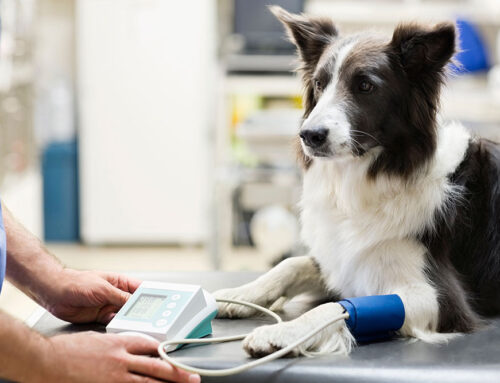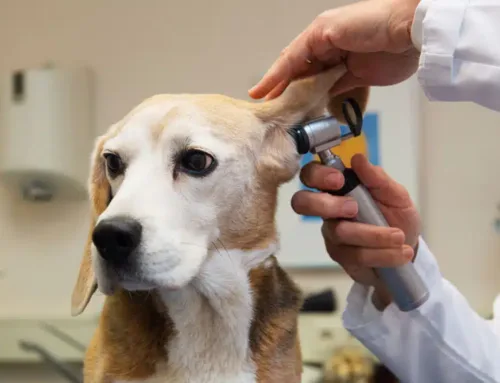If your pet is dealing with allergies, the condition can greatly impact their overall well-being. Imagine your dog scratching excessively or your cat licking themself incessantly. These could be allergy signs, and our Fairfax Veterinary Clinic team explains common pet allergies and how these conditions are diagnosed and treated.
Top allergens that trouble pets
Pets can react to various things in their environment, and their reactions can range from mild to severe. Most allergic pets have itchy, inflamed skin, but more serious cases, such as reactions to insect bites or medications, can cause facial swelling or breathing difficulties. Pets’ common allergens include:
- Food — Pets can develop allergies to certain ingredients in their food. This occurs when their immune system mistakenly identifies a specific food ingredient as harmful. Pets’ typical food allergens include beef, chicken, eggs, and dairy, and can present as itching, ear infections, and digestive issues.
- Environmental allergens — Many pets suffer from environmental allergies, or atopic dermatitis, which is caused by allergens in their surroundings such as grass and tree pollen, mold, and dust mites. Signs include itchy skin, especially on the paws, face, and belly, and frequent ear infections.
- Fleas — Flea allergy dermatitis (FAD), caused by a protein in flea saliva, is pets’ most common allergen. When fleas bite, they inject a tiny amount of saliva into your pet’s skin. Pets with FAD often scratch, gnaw, and rub constantly to ease the discomfort, even if you can’t see the fleas.
Cracking the case: Diagnosing allergies in pets
If your pet exhibits persistent itching, skin irritation, or gastrointestinal (GI) issues, consider allergies as a possible culprit. These signs often worsen with exposure to specific triggers and may not respond to typical treatments for other conditions, which means an accurate diagnosis is crucial. To pinpoint the exact cause, our team may perform a variety of diagnostic tests, including:
- History — We start by taking a detailed medical history to understand your pet’s exposure to potential allergens, previous allergy issues, and how the condition has progressed.
- Physical exam — Our team conducts a thorough head-to-tail exam, evaluating your pet’s skin for parasites and abnormalities.
- Blood work — We perform screening blood tests, such as a complete blood count and chemistry, to assess their overall health status and to rule out certain conditions.
- Culture and biopsy — In more severe cases, we may take a sample for culture to identify the pathogen causing your pet’s problem or perform a skin biopsy to accurately diagnose their skin condition.
- Allergy testing — Allergy testing is useful when identifying specific environmental allergens. However, this diagnostic is not useful for detecting food allergies.
- Food trial — Diagnosing a food allergy requires a food elimination trial and a lot of patience. Your pet must follow a strict hypoallergenic diet for 8 to 12 weeks, with no other foods, treats, table scraps, or flavored medications allowed. Your pet might wonder why they’re not getting their “cheese tax” in the kitchen, but the wait is worth it. If symptoms improve, we reintroduce their original diet’s ingredients one by one to find the culprit.
Solutions for soothing allergies in pets

While pets’ allergies can’t be cured, the signs can be effectively managed with prescribed medications and home treatments to provide relief and help your pet lead a comfortable life. Our team at Fairfax Veterinary Clinic will customize your pet’s treatment plan based on their specific condition. The treatments we may recommend include the following:
- Bathing — Regular baths in lukewarm water, using mild or hypoallergenic shampoo, can help remove allergens from your pet’s skin and soothe irritation.
- Topicals — If your pet has a skin or ear infection, we may prescribe topicals such as an ointment or drops to treat the condition.
- Flea control — Year-round flea control is essential for all allergic pets, as many are sensitive to fleas.
- Anti-itch medications — Various anti-itch medications, such as antihistamines, are available to relieve your pet’s discomfort. Our team will prescribe the most effective medication for your pet.
- Steroids — Steroids are sometimes needed initially to control severe skin irritation and itching, but shouldn’t be used long-term unless otherwise specified by our veterinarian.
- Allergy injections — For atopic pets, allergy injections can help gradually desensitize them to specific allergens.
- Knowledge — Knowledge is power to be able to recognize your pet’s allergy signs and to know when they need a veterinary assessment. The most effective way to prevent your pet from having an allergic reaction is pinpointing their allergens and avoiding those triggers.
Our goal is to make your pet as comfortable as possible while effectively managing their allergy signs. If your pet can’t stop itching, reach out to our team at Fairfax Veterinary Clinic. Call or book online so we can help determine whether allergies are the cause and create a personalized treatment plan to quickly relieve their discomfort.








Leave A Comment